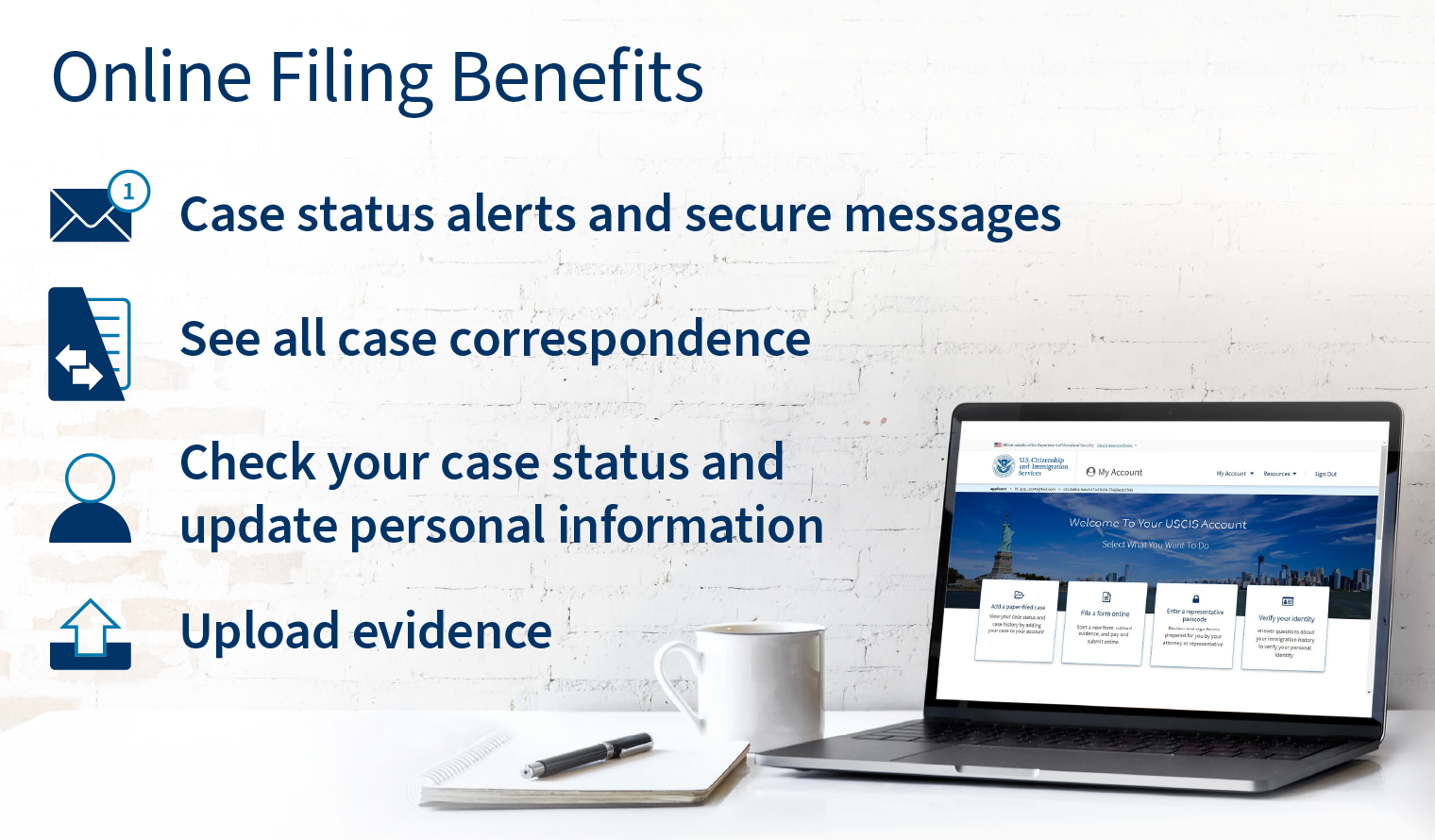
Alert: If you are filing Form I-130 on behalf of your Afghan national relative whose country of birth in Part 4, Item 7, is not Afghanistan, please write “OAW” at the top of your Form I-130 to be considered for a fee exemption that is effective through Sept. 30, 2024. For those petitioners that wish to be considered for the fee exemption and whose Afghan national relative was not born in Afghanistan, you cannot submit your petition online. You must complete a paper version of Form I-130 (PDF, 715.81 KB) and follow the instructions for filing the Form I-130 by mail (paper).
Use this form if you (the petitioner) are a U.S. citizen, lawful permanent resident, or U.S. national and you need to establish your qualifying relationship with an eligible relative (the beneficiary) who wishes to come to or stay in the United States permanently and apply for the Permanent Resident Card (also called a Green Card).
You must select only 1 option for Part 4 (Question 61 or 62) to indicate whether the beneficiary will seek adjustment of status inside the United States or consular processing abroad. Do not complete both questions, and do not leave this section blank.

Processing Information
Submitting Form I-130, Petition for Alien Relative, is the first step to help an eligible relative apply to immigrate to the United States and apply for a Green Card. The filing or approval of this petition does not give your relative any immigration status or benefit.
We will generally approve your Form I-130 if you can establish a qualifying relationship between you and your relative that allows them to immigrate to the United States. Generally, after we approve the petition, your relative may apply for a Green Card. If your relative is already in the United States and an immigrant visa is available, they may be eligible to apply for their Green Card by filing Form I-485, Application to Register Permanent Residence or Adjust Status.
Certain relatives must wait until an immigrant visa number is available before they can file Form I-485 (to adjust their status if they are in the United States) or request an immigrant visa at an embassy or consulate through consular processing (if they are outside the United States). However, if your relative qualifies as an immediate relative, an immigrant visa is always available.
If your relative is already in the United States but they are not eligible to apply for the Green Card by filing Form I-485, the relative may be eligible to apply for an immigrant visa with the U.S. Department of State at a U.S. embassy or consulate through consular processing. For more information on eligibility and the process to apply for a Green Card, please visit our Green Card Eligibility Categories page.
When you complete Form I-130, please make sure that you (the petitioner) select 1 and only 1 option indicating whether the beneficiary requests adjustment of status inside the United States or consular processing outside the United States. If the Form I-130 is still pending with USCIS and you want to change your selection (either to consular processing outside the United States or to adjustment of status in the United States), you may contact the USCIS Contact Center and request a change. If you want to change your selection to consular processing after we have already approved your petition, you may need to file Form I-824, Application for Action on an Approved Application or Petition.
| If: | You should: |
|---|---|
| Your Form I-130 is still pending with USCIS | Contact the USCIS Contact Center or the office address printed on your Form I-130 receipt notice to request a change. (See infographic to find the address on your receipt notice.) |
| We approved your Form I-130, and we notified you that USCIS will keep your petition, but your relative seeks consular processing. | File Form I-824, Application for Action on an Approved Application or Petition, to ask us to send your petition to the Department of State (DOS) National Visa Center (NVC) for consular processing. |
| We approved your Form I-130, and we notified you that we forwarded your petition to DOS for consular processing, but DOS has not contacted your relative yet, and your relative is now in the United States and wishes to apply for adjustment of status. | Contact the USCIS Contact Center. USCIS will request your Form I-130 from DOS. |
| We approved your Form I-130 and notified you that we forwarded your petition to DOS for consular processing, and DOS contacted your relative with a visa case or your Consular Electronic Application Center (CEAC) account says your case is at the NVC, but your relative is now in the United States and wishes to apply for adjustment of status. | Your relative should contact the NVC via their Public Inquiry Form at NVC Contact Information (state.gov). |
| We approved your Form I-130 and notified you that we forwarded your petition to DOS for consular processing, and DOS contacted your relative with a visa interview appointment or your CEAC account says your case is the U.S. embassy or consulate, but your relative is now in the United States and wishes to apply for adjustment of status. | Your relative should contact the U.S. embassy or consulate. Find their website at usembassy.gov. |
How to Report Suspected Marriage Fraud: We encourage you to report suspected immigration benefit fraud and abuse, including marriage fraud. For more information, please visit our Reporting Fraud page.
Help for victims of abuse
If you are the spouse, child, or parent of a U.S. citizen who has abused you, or the spouse or child of a lawful permanent resident who has abused you, you may be eligible to file a petition for yourself independent from your U.S. citizen or lawful permanent resident abuser. For more information, go to the Abused Spouses, Children, and Parents (Form I-360 VAWA Self-Petitioners) webpage.